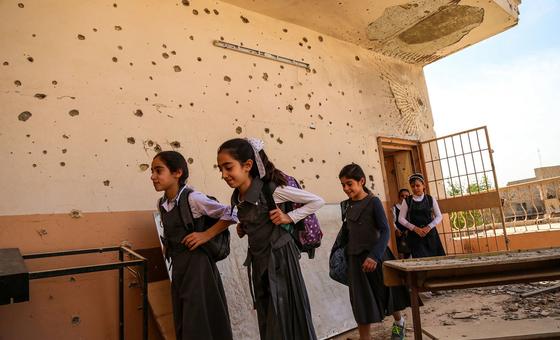With tens of millions of children heading back to school in recent weeks, for some, the return to class has them fearing for their lives.
Growing concern over safety and security prompted UN Secretary-General António Guterres to address the global phenomenon on Wednesday – during his remarks at an event commemorating the International Day to Protect Education from Attack.
“Children’s education is being snatched away by threats, violence and attacks.” Mr. Guterres said, during his remarks to a group of world leaders and education advocates.
Under fire
According to a new report from the non-profit Global Coalition to Protect Education from Attack, there were more than 3,000 reported attacks on education in 2022 – a 17 per cent increase from the previous year.
The report found more than 6,700 students and educators were killed, injured, abducted or arrested – a 20 per cent increase.
Echoing some of the facts outlined in the report, The Secretary General noted the attacks on education span “from direct assaults on places of learning to schools and universities being used for military purposes – to students and educators abducted, arbitrarily arrested, injured, killed – and even recruited to the fighting.”
Many students attend school under dire circumstances, especially in countries like Ukraine; still suffering through Russia’s full-scale invasion.
According to news reports some children in war-torn Ukraine began the new school year attending class underground for security reasons.
“We cannot always stop conflicts. But we can ensure that the children and young people living through these crises receive the educational support they need,” Mr. Guterres said.
The UN has laid out ways countries around the world can work together to protect education.
Safe schools
“That begins with all countries endorsing the Safe Schools Declaration which details concrete measures and practices to ensure that places of learning – and the people inside them – are protected at all times during armed conflict”, the UN chief noted.
Attacks on the education system are not the only factor keeping children out of school.
Others are out of class because of social, economic or cultural challenges.
According to UN education, science and culture agency UNESCO, an estimated 244 million young people do not attend school.
Sub-Saharan Africa is the region with the most children and youths out of school – an astonishing 98 million.
In second place with the second highest population is Central and Southern Asia, with 85 million, UNESCO added.
We must do more
The UN reiterated the importance of education in creating a pathway to a brighter future for every person and promotes a peaceful world for all. Mr. Guterres urged world leaders to take immediate action for quality education.
“We can – and must – protect education from attack,” he concluded.

